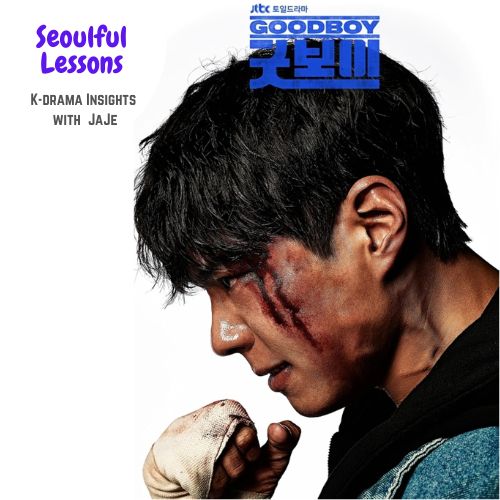20 Ways to Express Your Emotions in Korean
- byT.Sapphire 💙
- 4 months ago
- 0 Comments
- 4mins

Hey, welcome back to class, and today is all about expressing your emotions in Korean because why just say “I Love You” when you can make it K-Drama confession worthy?
So, Koreans have fun and unique ways to express how they're feeling, and if you learn these ways, you won't just be speaking Korean, you'll be speaking K-Drama Korean as it should be!
Come with me.
1. 행복해요 (Haengbokhaeyo) – I'm Happy
This one is classic, basic and not over the top. It’s just standard sunshine ‘happy’. The type you feel when everything just goes well.
2. 기뻐요 (Gippeoyo) – I'm Glad/Delighted
This feels like happiness with extra glitter (Just the way it sounds in English). You can use this for when your delivery comes in early or when Netflix releases all episodes of a much anticipated drama at once.
3. 신나요 (Sinnayo) – I'm Excited
If you’ve ever felt a type of happiness that made you jump on your couch even at your old age, just express yourself with 신나요
4. 화나요 (Hwanayo) – I'm Angry
This is the polite version of "I'm mad". But if someone's eaten your ramen, then go with 화났어 (Hwanasseo-I'm mad).
5. 짜증나요 (Jjajeungnayo) – I'm Annoyed
This is softer than angry and there’s no need to vent on anyone. It's perfect for when you have slow Wi-Fi or those filler episodes of a drama!
6. 무서워요 (Museowoyo) – I'm Scared
Good for horror movies, or when your professor says, "pop quiz!" or “Tear a sheet of paper” (Side eye for Nigerians).
7. 걱정돼요 (Geokjeongdwaeyo) – I'm Worried
Your friend hasn't texted back in three hours? You should be saying 걱정돼요, although I am not sure you will have the time for that.
8. 슬퍼요 (Seulpeoyo) - I'm Sad
This one is out of a K-Drama rainy window scene. This is what you feel when your crush doesn’t like you back.
9. 외로워요 (Werowoyo) - I'm Lonely
You’re probably lonely because you are single but yeah, 외로워요 (Oerowoyo) is how to express that.
10. 놀랐어요 (Nollasseoyo) - I'm Surprised
The plot twist word of all plot twist words. Purely for makjang because “how in the unrealistic world are you eating that much?”.
11. 싫어요 (Sireoyo) - I Don't Like It
Direct but polite, just never say it, or even think about it, when you're criticising your mother-in-law's cooking. Don’t say I didn’t tell you.
12. 미워요 (Miwoyo) - I Hate It/You
More intense than 싫어요. Ah, this is so dramatic because, of course, it’s a strong word.
13. 사랑해요 (Saranghaeyo) - I Love You
You saw this coming, right? When you’ve finally gone past the ‘I like you’ phase, what comes next?
14. 보고 싶어요 (Bogo Sipeoyo) - I Miss You
You’ve heard this in K-dramas countless times already. Use this for family and friends, not just romantic partners.
15. 헷갈려요 (Hetgallyeoyo) - I'm Confused
This one is your life or death phrase used exclusively for grammar class, especially the Korean grammar class.
16. 지루해요 (Jiruhaeyo) - I'm Bored
Almost every Monday morning, you will need this.
17. 부끄러워요 (Bukkeureowoyo) - I'm Shy/Embarrassed
Not the cringy type of shy, more like the cute type that makes you look like a puppy dog.
18. 자랑스러워요 (Jarangseureowoyo) - I'm Proud
You know that moment when you finally master that Korean phrase you’ve been struggling with for a decade? That is when to use this.
19. 죄책감 들어요 (Joechaekgam Deureoyo) - I Feel Guilty
For downing the last chicken wing and pretending you didn't (Why would you do that in the first place though)
20. 후회돼요 (Huhwedwaeyo) - I Regret It
When you let yourself be in the friend zone for the longest time and now they are getting married, all you can do is down a plate of Kimchi while mumbling 후회돼요 (Huhwedwaeyo)
And that was it. 20 authentic ways to express emotions in Korean
Now, here are your tips. What I suggest is not to simply learn them, but to perform them, use them while watching dramas, or even practice in front of a mirror (yes, I said it.)
Also, the importance of practicing in Hangul instead of Romanization can’t be emphasized, you know that, right?
That’s all for today’s class. See you in the next one. Ciao.
T.Sapphire 💙
T. sapphire is a writer who found her love for the Hallyu wave after watching the historical drama “Jumong.” She is mainly interested in Korean dramas and the history of Korea at large. Explore her pieces as she takes you on a journey through K-Drama recommendations and keeps you informed about the history of the Korean people.
3 LESSONS I LEARNED FROM GOOD BOY (굿보이)
0 Comment(s)
Related Posts
Daily Newsletter
Get all the top stories from Blogs to keep track.





Leave a comment